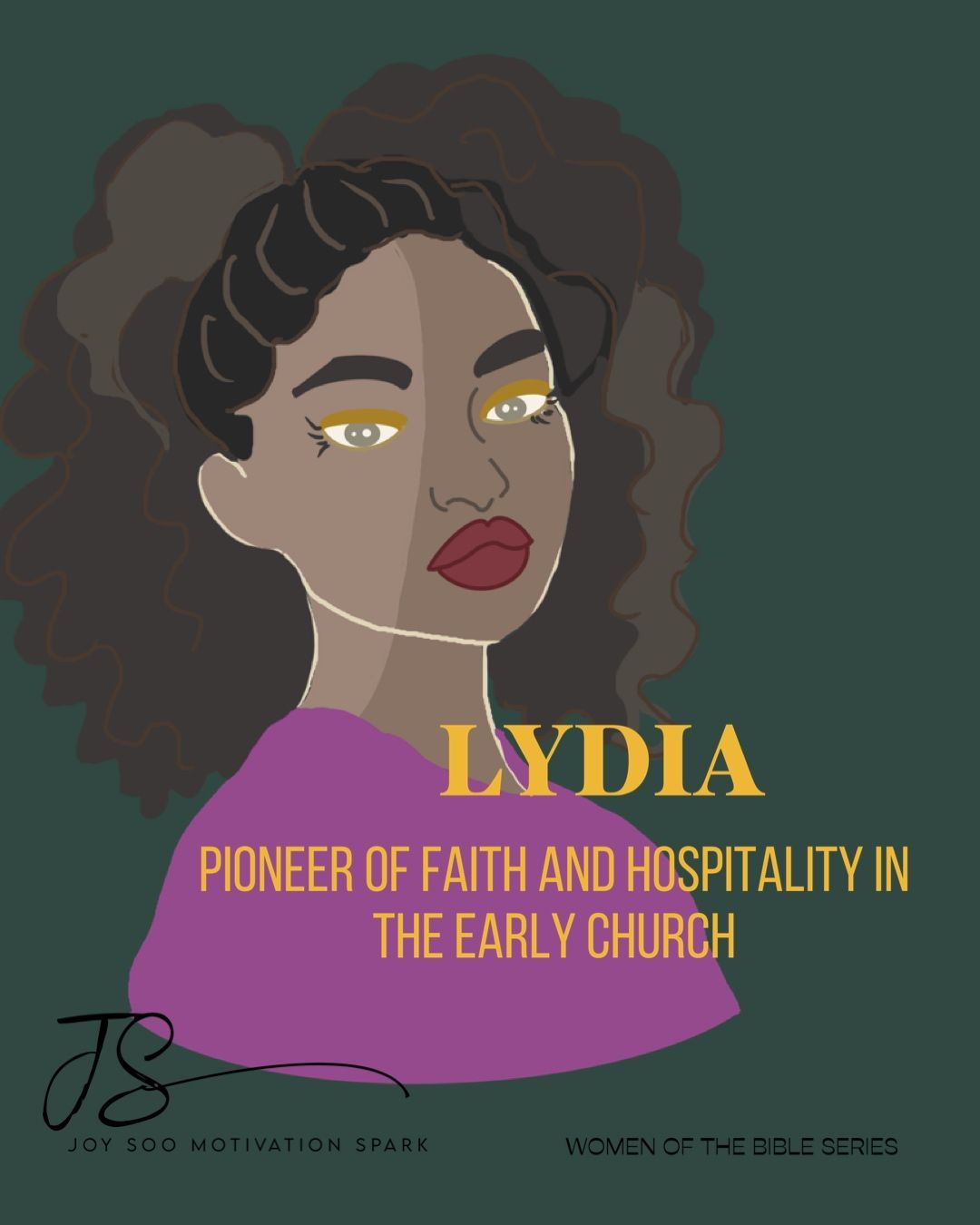
LYDIA
Pioneer of Faith and Hospitality in the Early Church
In the Bible, Lydia is mentioned in the New Testament, specifically in the Book of Acts. She appears in Acts 16:11-15 and is noted as a significant figure in the early Christian community.
The account of Lydia is set during the Apostle Paul's second missionary journey. Paul and his companions, including Silas, Timothy, and Luke, travel to Philippi, a leading city in the district of Macedonia and a Roman colony. Philippi was located in what is now modern-day Greece.
Lydia is introduced as a "seller of purple cloth," which indicates that she was a person of means and possibly involved in a lucrative trade, as purple dye was highly valued and expensive in ancient times. It is also mentioned that Lydia was from the city of Thyatira, which was known for its dye industry.
Importantly, Lydia is described as a "worshiper of God." This term suggests that she was a Gentile adherent to Judaism who respected and practiced Jewish customs without being a full convert. The narrative tells us that she was present at a place of prayer by the riverside, outside the city gates of Philippi, when Paul and his companions arrived there on the Sabbath.
During Paul's interaction with the group of women at the riverside, Lydia listens to Paul’s message about Jesus Christ, and the Lord "opened her heart" to respond to what Paul was saying. She subsequently believes in his teachings and is baptized, along with members of her household, marking her as one of the first converts to Christianity in Europe.
After her baptism, Lydia extends hospitality to Paul and his companions by inviting them to stay at her home. This act signifies not only her generosity but also her commitment to the Christian faith. Lydia’s home likely became a gathering place for the early Christian community in Philippi, and she is seen as a pivotal figure in the spread of Christianity in the region.
In summary, Lydia’s brief appearance in the Bible highlights her role as a significant early convert who, through her faith and resources, supported the nascent Christian movement. Her story demonstrates themes of hospitality, faith, and the early expansion of Christianity into Europe.
DISCUSSION STARTERS
How might Lydia's profession as a "seller of purple cloth" have influenced her status in society and her ability to impact the early Christian community?
What does the narrative of Lydia's conversion tell us about the ways in which divine intervention is portrayed in the Acts of the Apostles?
How did Lydia's offer of hospitality to Paul and his companions reflect her commitment to her new faith, and what can her actions teach us about the importance of hospitality in today’s religious communities?
PRAYER
Heavenly Father,
We come before You with grateful hearts, inspired by the life of Lydia, a faithful servant from the early days of the church. We thank You for her example of open-heartedness and hospitality, and for her willingness to embrace Your truth with conviction and joy.
Lord, just as You opened Lydia's heart to receive the message of Your love, open our hearts to hear and respond to Your calling in our lives. Grant us the courage and generosity to extend hospitality to others, welcoming them with kindness and grace.
Help us to use our resources, talents, and influence to support and nurture our communities, as Lydia did in Philippi. May we be instruments of Your peace and love, spreading Your Word through our actions and service.
In Jesus name we pray, Amen